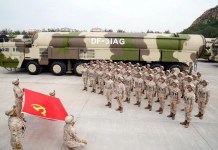As the North Korea nuclear crisis escalates, it is difficult to forget the humanitarian catastrophe that Japan suffered from two atomic bombs during the second world war. What lessons can people learn from the history of nuclear crisis today?
Last year, the US President Barack Obama visited Hiroshima on the occasion of the original explosion, expressed the establishment of a nuclear-free world of the landscape. People can not help but ask: why the World War II between the United States and Japan on the secret talks did not succeed in preventing the use of the atomic bomb?
As the historians turned away from the dusty day, a CIA agent who was in Europe at the time, came to break the silence. And the German Benichiro on the basis of the interview, in recent years through the decryption of diplomatic documents and documents to find, to further understand why this secret channel failed to get through.
Irish-born American Martin Quigley on the occasion of the outbreak of World War II, accepted the US President Roosevelt ordered the establishment in 1942 the US Strategic Service (US CIA predecessor) agents training, in 1943 was stationed in Ireland, to collect politics And military intelligence. Quigley’s public identity is the film production and distribution of the American Film Association.
After the surrender of Italy in December 1944, Quigley, born in the Catholic family, was assigned to Rome in the same capacity. He was directed by the founder of the CIA, New York’s lawyer, Lieutenant General William Donovan. Donovan hopes to open up through Japan’s influential Vatican and Japan’s secret diplomatic channels of negotiations. He asked Quigley to use his relationship with the Holy See to test the possibility of the Japanese empire surrendered to the Allies.
But Quigley did not understand why Tokyo did not reply to the two telegrams and did not even confirm the receipt of the telegram to Ambassador Hindi. Quigley at the end of World War II years later, in February 1972 finally found the former Japanese ambassador to the Vatican Xin Tian, wrote to him about the whereabouts of the telegraph.
Is Hinta not sending a telegram? Why did not Tokyo reply? Or Tokyo’s decision-makers did not respond positively to the information? Quigley said in his letter, hope to get the answer, not only responsible for history but also responsible for the future.




